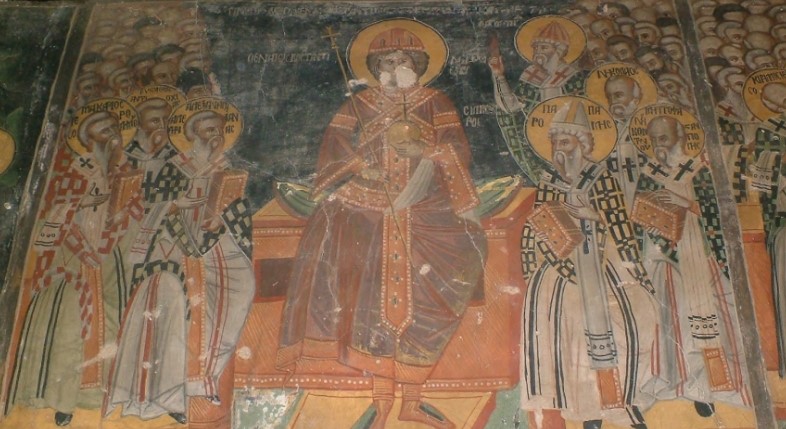Podcast: Play in new window | Download
Subscribe: Spotify | Email | RSS

The famous church historian Eusebius tells us that at the famous 325 council at Nicea, it was the emperor Constantine who suggested using the word homoousios (variously translated as “consubstantial,” “same esssence,” “same substance”).
Is this plausible? And if so, why would Constantine have done such a thing? What, if anything, in his own religious background would point him towards that term? What was Constantine’s theology, and how might he have understood it?
In this episode Kegan Chandler answers these questions using the latest historical research. He argues that we can go beyond the now widely agreed point that homoousios was employed by this council because it was not then a popular or widely used term, and so it did not have any widely accepted meaning. This enabled the majority of bishops to use the term as a stick with which to drive out Arius and his party, who did not like the term, while various bishops chose to interpret it in various ways, depending on their theological proclivities (e.g. Marcellan neo-monarchianism or Eusebian subordinationism). Whatever the various anti-Arian bishops were thinking, here Chandler ventures an educated guess as to what Constantine was thinking… and it has something to do with Egypt!
The video version of this episode is strongly recommended:
Links for this episode:

- The live-streamed version of this lecture.
- The God of Jesus in Light of Christian Dogma
- his blog Buried Deep
- The God of Jesus
- @Academia.edu
- Rufinus’s corruption of Origen’s On First Principles – Part 1
- Rufinus’s corruption of Origen’s On First Principles – Part 2
- podcast 30 – The Council of Nicea
- podcast 175 – Marcellus of Ancyra
- This week’s thinking music is “Again, Once Again” by fluffy.
